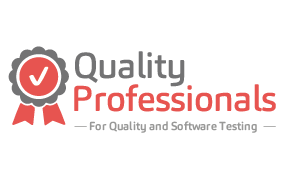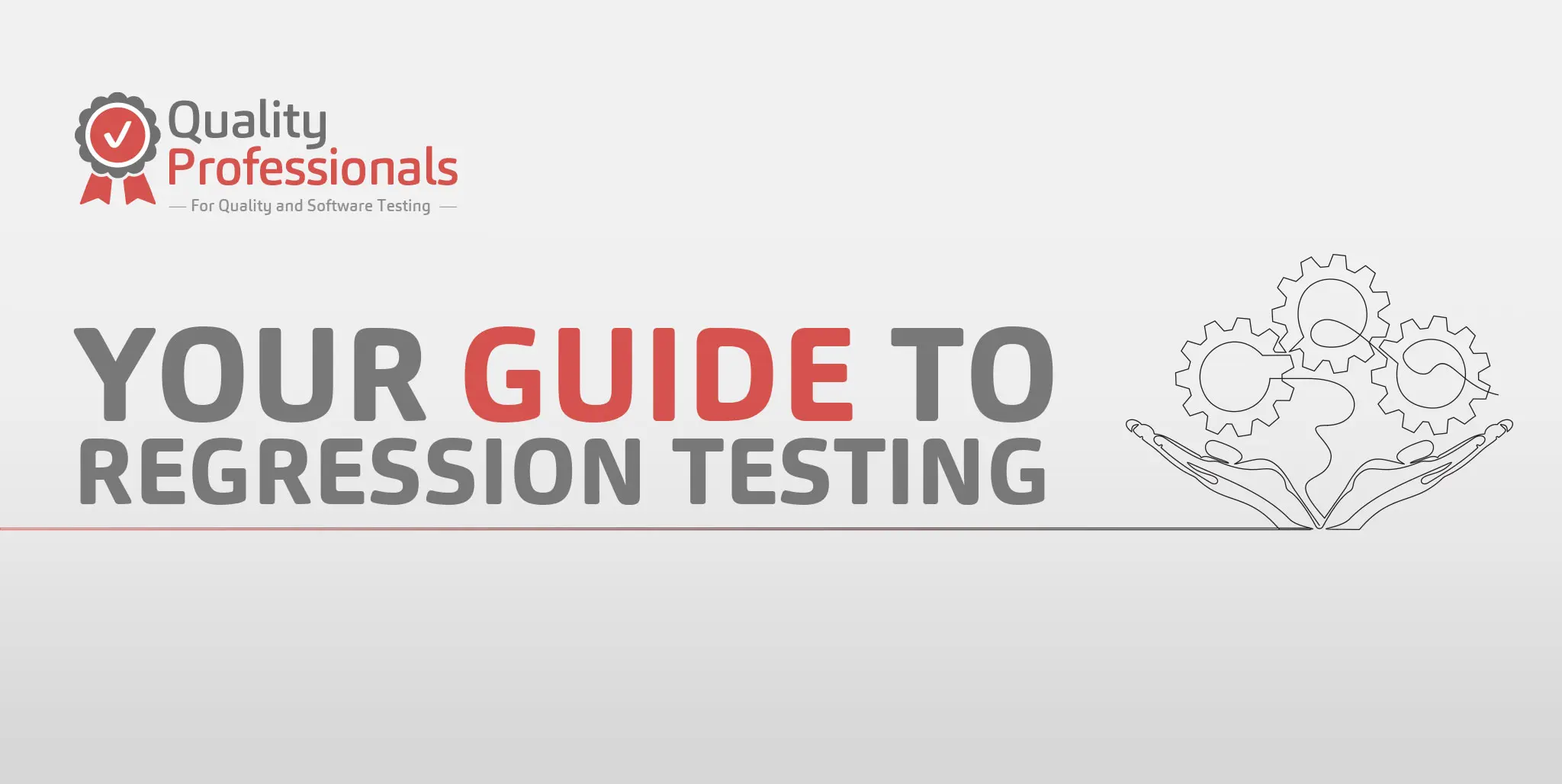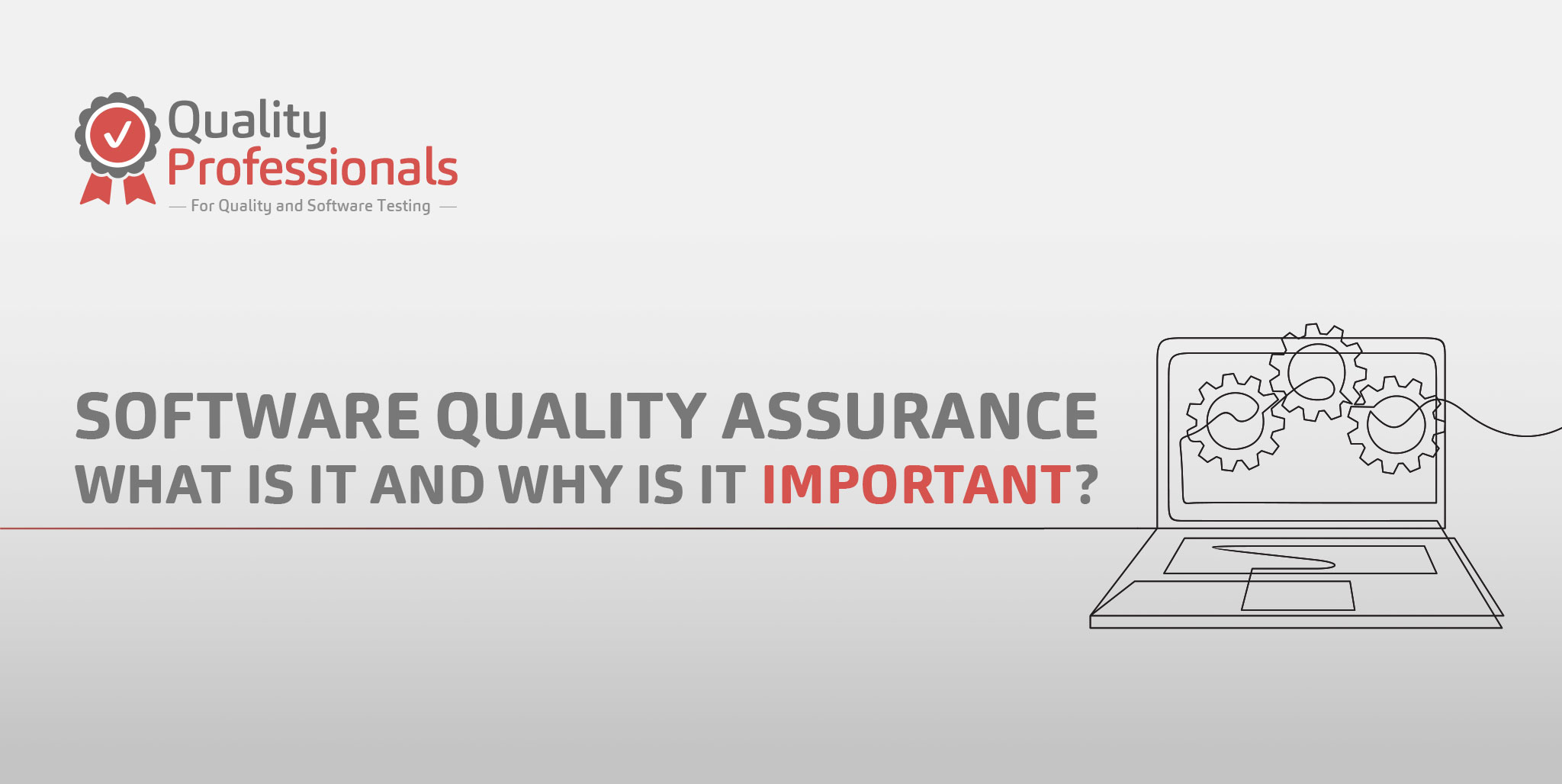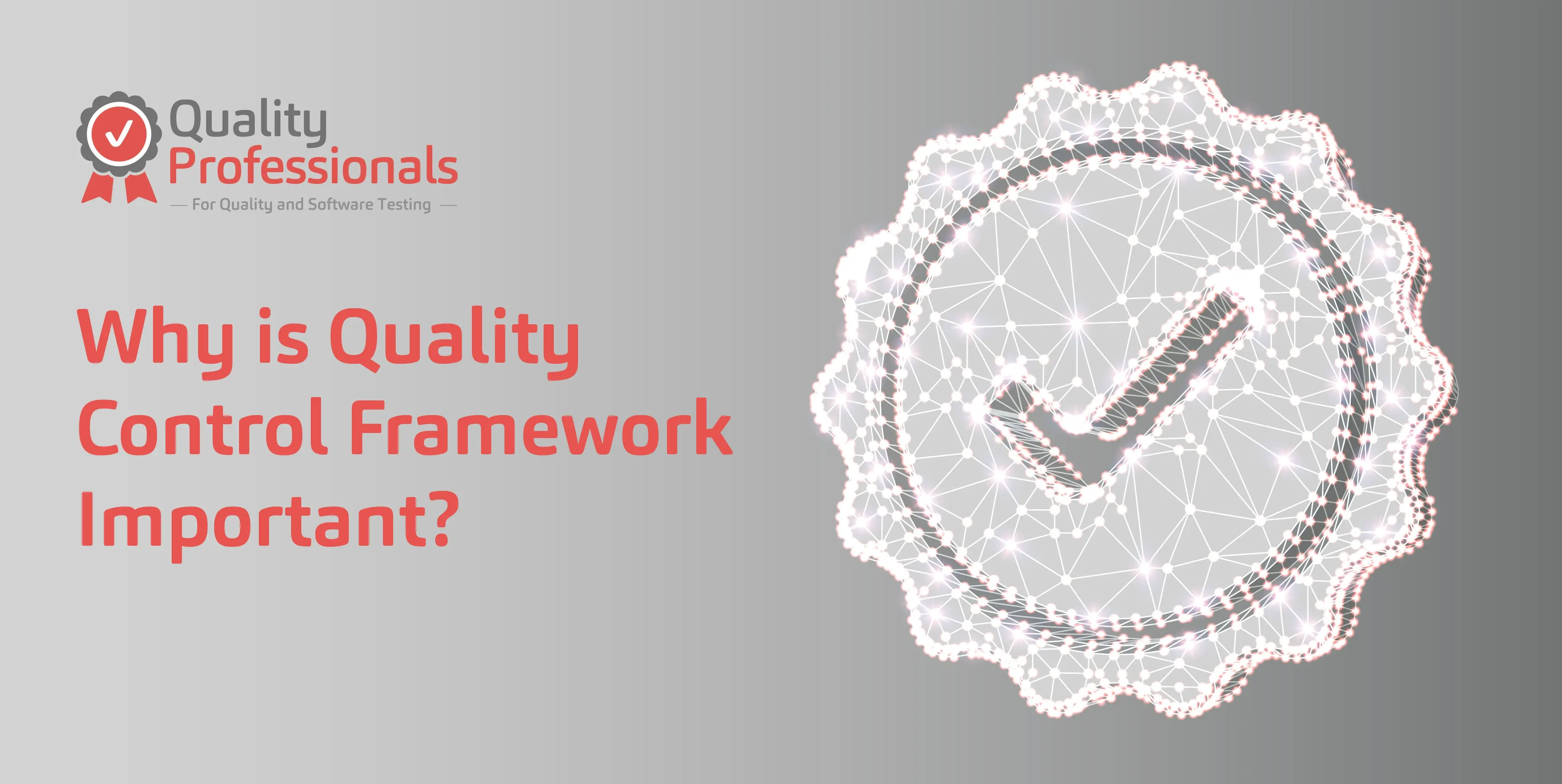Regression Testing is a type of software testing where previously tested functionalities are re-tested to verify that recent code modifications do not affect existing features. Performance enhancements, bug fixes and new updates require alterations to the code base of the application. Hence, unforeseen issues might appear. Therefore, identifying and fixing any regressions or bugs is crucial to maintaining the overall software quality. In this article, we’ll cover everything you need to know about regression testing. Table of contents • When should Regression Testing be performed? • Real-life example for regression testing • How is Regression Testing implemented? • Types of Regression Testing • Benefits of Regression Testing • What is the role of Quality Professionals? • Frequently asked questions When should Regression Testing be performed? Below are some key scenarios in which regression testing is needed:Adding new features: Regression testing is used to validate that pre-existing features continue to operate seamlessly, and risks of a downtime are mitigated. Bug fixes:Regression testing is used to verify that code adjustments to fix bugs do not affect other components in the application. Optimizing the code:Regression testing guarantees that optimizing the code will enhance the application without adversely impacting other functionalities. Example – Amazon Website Regression Testing Take Amazon.com as an example, every day, Amazon’s e-commerce platform processes millions of transactions. Thus, seamless performance is significant to the company’s operations. Consider this scenario: a new feature must be added to the homepage such as a “Prime Day” exclusive offer. Before adding this section, it is important to make sure that such an addition does not disrupt any of the existing functionalities like search, cart checkout, or payment processing. To verify this, a Regression Test suite would be executed to confirm that all other components continue performing as expected. For instance, if this test fails and reveals that the “Checkout” button is unresponsive or leads to a broken link, it would be flagged as a bug. Developers would then prioritize fixing this issue to prevent monetary lossanda bad customer experience which would affect the brand. By using regression testing, you can confidently implement changes to your software while maintaining the user experience across various functionalities. How is Regression Testing Implemented? The procedure followed to implement Regression Testing is similar toother testing processes. Every time the application undergoes code adjustments; the following steps are taken:Initially, unit-level regression tests are executed to validate the modified code alongside any other tests written to cover new or changed functionality.Then, the new code is merged and integrated to create a new build of the application under test (AUT)Next, smoke tests are executed for assurance that the build is good before any additional testing is performed.Once the build is declared good, integration tests are performed to verify the interaction between units of the application with each other and with-end services like databases.After that, depending on the size and scope of the released code, either a partial or a full regression is scheduled.Defects are then reported back to the development team. The Image below depicts how Regression testing is performed Types of Regression Testing There are several types of regression testing, each one serving a specific purpose, here are some common types:Corrective Regression TestingThis type exclusively focuses on verifying that specific fixes made to the application have been successfully resolved without introducing problems.Retest-All Regression TestingThis type involves re-running all the test cases in the test suite to ensure that the entire application is still functioning correctly.Selective Regression TestingAs the name indicates, this type of test is only a subset of the test cases that are most likely to be affected by the recent changes, reducing the effort and cost of testing.Progressive Regression TestingThis type is used when there is an update on the software specifications. Complete Regression TestingThis type is performed when multiple changes have been made to the software, it involves testing the entire application to ensure overall stability. Unit Regression TestingFocuses on testing individual units or components of the software to ensure no new bugs are introduced at the unit level. Benefits of Regression Testing Regression Testing ensures stability and reliability, offering the following key advantages:Preserving Functionality: Protecting existing features from unintended outcomes of code changes.Boosting Confidence in New Releases: Providing assurance for successful new releases and updates.Enhancing Quality: Detecting and resolving defects early.Improving Efficiency: Implementing automation which accelerates testing, minimizes errors, and lowers development effort.Ensuring User Satisfaction: Delivering a consistent and reliable user experience. By incorporating regression testing into the development process, companies can guarantee that their software and applications remain robust and reliable, even as it evolves. What is the role of Quality Professionals (Q-Pros)? Being familiar with the latest tools we never let you struggle with software errors. Our regression testing experts’ techniques and tools easily find the effects of modified code on the functionality of the software and help you to get a bug-free application in the changing operating environment. Frequently Asked Questions What is automated regression testing? Automated regression testing is a software testing technique that uses specialized tools and frameworks to execute regression test cases automatically, providing faster feedback and increased efficiency. What is the difference between regression testing and integration testing? While Regression Testing is performed after changes are made to the codes, integration testing is done after unit testing and before system testing. Both types are crucial to delivering high-quality software. How to execute regression testing? Regression testing can be executed with the following steps:Selecting test cases.Estimating time to execution.Identifying cases for automation.Setting priorities.Executing test cases. When to execute regression testing? Regression testing is recommended to be executed by the end of every sprint. Automated regression testing is a software testing technique that uses specialized tools and frameworks to execute regression test cases automatically, providing faster feedback and increased efficiency.While Regression Testing is performed after changes are made to the codes, integration testing is done after unit testing and before system testing. Both types are crucial to delivering high-quality software.Regression testing can be executed with the following steps:Selecting test cases.Estimating time to execution.Identifying cases for automation.Setting priorities.Executing test cases.Regression testing is recommended to be executed by the end of every sprint....
Read MoreAuthor: q-pros
In today’s competitive market, businesses must deliver superior products across various domains, including software, mobile, and web applications. Ensuring these offerings meet high standards and provide a valuable user experience is crucial; this is the role of Quality Assurance Consultations. This article examines the concept of Software Quality Assurance (SQA), the importance of QA consultations with businesses, and how partnering with skilled Quality Assurance Experts such as Quality Professionals can make all the difference. What is Software Quality Assurance? Software Quality Assurance (SQA) is a service provided by experienced professionals in the domain of QA and software testing, it helps businesses ensure their products run properly and meet quality standards set by specialized regulatory entities. This service is significant in applications and software launched by governmental entities. These professionals guide businesses through testing the application, identifying weaknesses, and suggesting improvements before the product reaches the end-user. Consider a scenario where an application developed over several months is about to be launched. Despite its promising design, unforeseen issues - such as payment failure issues, system crashes due to high user traffic, or security vulnerabilities - can compromise the application's integrity. To mitigate these issues, a quality assurance engineer conducts extensive tests, evaluates the software, and identifies problems. However, if issues are only addressed at the end of the software development cycle, the application may still face compliance issues with regulations and guidelines post-launch. Therefore, it is recommended that quality assurance consultations occur during the software development lifecycle. This approach ensures that the application meets all necessary standards at every stage, facilitating a quicker market launch while maintaining reliability. Quality assurance consultations cover everything, from performance and functionality to security, guaranteeing all aspects are thoroughly examined. Why is Software Quality Assurance Important? Software Quality Assurance involves a series of processes and activities designed to evaluate the quality of software applications. SQA also ensures that quality standards are met through every stage during the software development lifecycle (SDLC). Effective quality assurance is key to achieving success in the software development process. Below are the top reasons why SQA is crucial. 1. To Catch Issues Before They Reach Users One of the main goals of quality assurance is the early detection of issues, users must not encounter bugs after the application has been launched, as this can damage the company's reputation and lead to frustrated users. By getting experts’ opinions during the software development, these issues can be caught before they make their way into the last version. 2. To Improve Efficiency QA engineers play a vital role beyond identifying problems; they assist businesses in finding effective ways to address these problems. From streamlining the development process to conducting thorough testing, a good consultant in the field of QA and software testing ultimately saves both time and resources for the organization. 3. To Ensure Security and Compliance Security has always been a significant concern in the IT industry. QA engineers will examine the product from a security standpoint, helping you identify vulnerabilities that could be exploited. QA engineers will also ensure that the product complies with relevant data protection standards. This methodology is particularly important in industries like healthcare, finance, or e-commerce, where sensitive information is involved. A security flaw in fintech, for example, could result in a data breach, damaging both the company and its customers. Why Choose Quality Professionals for Quality Assurance? At Q-pros, we understand how quality is crucial for your application and systems. Therefore, we have systemically developed and continuously improved our unique quality assurance framework to fit every client’s needs. With more than a decade of continuous growth, we have successfully worked with many clients across different industries to help verify and validate the quality of their systems and applications using manual and automation testing tools over several types of development technologies and platforms. We have helped our clients Promote quality Deliver defect-free software Cut rework costs Increase end-user satisfaction Frequently Asked Questions What is Quality Assurance (QA)?QA is a process that ensures products or services meet certain quality standards. It involves checking that everything works correctly and meets the requirements. What does a QA Engineer do?A QA Engineer tests software to find and fix bugs. They create test plans, run tests, and report any issues they find. What is the difference between QA and testing?QA is about improving the process to prevent defects, while testing is about finding defects in the final product. QA is a process that ensures products or services meet certain quality standards. It involves checking that everything works correctly and meets the requirements. A QA Engineer tests software to find and fix bugs. They create test plans, run tests, and report any issues they find. QA is about improving the process to prevent defects, while testing is about finding defects in the final product. What are some common types of testing? Unit Testing: Testing individual parts of the software. Integration Testing: Testing how different parts of the software work together. System Testing: Testing the complete software to ensure it meets requirements. Acceptance Testing: Testing to make sure the software meets the needs of the users. What is manual testing?Manual testing is when testers manually execute test cases without using automation tools. It’s useful for finding issues that automated tests might miss. What is automated testing?Automated testing uses software tools to run tests automatically. It’s faster and more efficient for repetitive tasks. Unit Testing: Testing individual parts of the software. Integration Testing: Testing how different parts of the software work together. System Testing: Testing the complete software to ensure it meets requirements. Acceptance Testing: Testing to make sure the software meets the needs of the users. Manual testing is when testers manually execute test cases without using automation tools. It’s useful for finding issues that automated tests might miss. Automated testing uses software tools to run tests automatically. It’s faster and more efficient for repetitive tasks. What is a test case?A test case is a set of conditions or steps used to test a specific part of the software to see if it works correctly. What is regression testing?Regression testing checks that recent changes or updates to the software have not broken existing functionality. A test case is a set of conditions or steps used to test a specific part of the software to see if it works correctly. Regression testing checks that recent changes or updates to the software have not broken existing functionality....
Read MoreNowadays, if you are to launch high-end software application, you cannot just develop it and put it out there for users, you will always have to test its functions and features, usability, and reliability. That’s why assuring a product’s top-notch quality is not some casual procedure taken after development but a crucial part throughout the whole development.In this context, being TMMi certified becomes increasingly important, as TMMi certification provides a structured framework for improving and assessing the maturity of software testing processes, ensuring that quality assurance is integrated seamlessly into the development lifecycle.Content What is TMMi CertificationTMMi Maturity LevelsThe Importance of TMMi CertificationGlobal RecognitionQuality Professional’s Role 1. What is TMMi Certification TMMi stands for Testing Maturity Model Integration. This certification was founded and developed by the TMMi Foundation. It is a structured framework that helps organizations assess and improve their software testing processes. It structures a roadmap to enhance testing practices, ensuring that every stage of your testing process is as efficient and effective as possible. The TMMi certification is now considered the standard for quality testing across the globe, and it serves as evidence of a company’s commitment to quality and testing excellence. 2. TMMi Maturity Levels 3. The Importance of TMMi Certification Why is it important for you as a company to get a TMMi Certification and achieve all the levels? Getting certified means adhering to the utmost quality standards and sustaining excellence. It also means that you have a solid and reliable testing process. This certification can also help you with the following: Boost clients' confidenceEnhance process efficiencyDecrease defects and reduce costBuild a quality-first cultureSupport continuous improvement 4. Global Recognition All organizations and entities need to be recognized around the world since business is not limited and confined to one border. The TMMi certification is a certificate that provides you with global recognition which as a result allows your business to expand and explore new opportunities in new markets around the world. It will also give your business credibility and a competitive advantage and ensure consistency in your business quality. 5. Quality Professionals Role Quality Professionals will work by your side as your partner until you achieve all levels of TMMi certification. We’ll train your team, set up the right tools, and keep everything on track. With our help, you will go from initial level to optimization in a record time. Our team will also help you navigate the certification process, from assessing your current testing practices to implementing improvements and passing the final audit. At Quality Professionals, we help our clients establish a unique quality framework that is tailored to match your organization’s business. This framework is built according to the industry best practices and international standards that are in accordance with the TMMi foundation standards and procedures. This means implementing the most efficient quality and testing practices in your day-to-day operations, which as a result help you launch flawless software and applications. Furthermore, this ensures delivering right the first time which significantly increase your Return on Investment (ROI) and avoid rework cost. In simple words, Quality Professionals are here to pave your way to achieve all the levels of the Testing Maturity Model Integration TMMi Certification and achieve your quality objectives and long-term goals. Conclusion To conclude, getting the certification of TMMi is not just a milestone on the development roadmap that needs to be achieved, it is what communicates your company’s commitment to excellence and contributes to its future. Achieving each level of maturity will help you elevate your testing quality, optimize efficiency, and enhance reliability in the software testing process. This certificate will also ensure that your organization’s reputation is well-maintained in the local and international marketplace. Request a Service ...
Read MoreA Quality Control Framework is a structured approach that revolves around enhancing and managing the quality of a business’s operations, applications, and services. It ensures that these products and services meet standards, comply with regulations, and are supported by quality professional services to deliver excellence.Content Quality Control Framework Components.Why is a Quality Control Framework important?How to Implement an Effective Quality Control Framework?Who is Responsible for Quality Control? 1. Quality Control Framework Components A quality control framework always includes different processes, procedures, and tools to follow along with guidelines and rules. These key components include:Quality Standards The quality standards make applications and services eligible to be accepted in terms of quality. The standards here refer to the criteria that they must meet to be considered of high quality. These criteria are tailored for our clients while conforming to the industry best practices and regulatory bodies simultaneously. Quality Control Processes The quality process is established and applied to ensure that the target applications and services meet the necessary standards, it allows prompt identification of shortfalls and defects before launching. This process optimizes workflows, ensures quality of applications, and incorporates regular monitoring, reporting and auditing to make sure all goes according to the designated timeframe. Quality Control Tools Quality control tools are mainly used to report defects, track, and manage the fixes of them in a centralized, interactive, and collaborative platform. These tools provide comprehensive insights into progress, the classifications, and prioritization of the reported defects These tools enhance the accuracy in defect identification which eventually reducing the likelihood of defective applications and software. 2. Why Is a Quality Control Framework Important? In the current highly competitive market, the benefits of establishing and implementing a highly effective quality control framework cannot be unnoticed. These benefits vary from maintaining quality consistency to ensuring compliance with standards and regulations. Now let's explore more why a quality control framework is necessary:Compliance with Standards and Regulations Applying a quality control framework in your business process helps in following the standards and regulations which in return ensure all operations are effective, ethical, and achieve the intended objectives. Quality control guarantees what entities offer meets these standards, as such, failing to comply with them can lead to customer loss, legal and financial consequences, and a damaged reputation. Customer Satisfaction Controlling the quality within organizations ensures that the offered services and products are meeting and sometimes even exceeding the satisfaction of the customers. This builds trust between the customer and the organization and solidifies loyalty. Cost SavingAs mentioned previously, the implementation of an effective quality control framework can assist with the early discovery of defects and errors. As a result, the early discovery of faults reduces the costly rework and sheds light on improvement areas at the beginning of the journey. 3. How to Implement an Effective Quality Control Framework The implementation of an effective quality control framework requires a systematic approach to gain the utmost benefits. Below are the steps that are to be followed for a successful implementation:Step 1: Identify Quality Standards To start implementing your quality framework, you will first need to identify and set the quality standards that are to be met. These standards are specified by regulatory bodies, industry organizations, or the internal authorities within to ensure compliance. Step 2: Define Quality Control Processes Next, define the procedures that ensure all standards are met, including exploring and analysis, testing, and auditing. Step 3: Train Employees Empower employees with the needed knowledge and adequate training to guarantee they fully comprehend their role in maintaining high quality throughout the production process. Step 4: Use Quality Control Tools Research, study, and specify which quality tools are suitable to manage, report, collect, and analyze data. Step 5: Monitor and Measure Quality The regular checkups and audits maintain meeting the standards set and identifying areas for improvement. Step 6: Continuously Improve Finally, this step is a lifetime process in which you have to always improve the quality of what you are providing for customers to strengthen their loyalty. 4. Who Is Responsible for Quality Control? Ensuring quality is not a one-person task, it is a collaborative, cross-functional activity that engages multiple stakeholders with the aim to achieve a common goal. Despite that, the quality control teams who are solely dedicated to ensure quality are the ones whose mission is to ensure flawless, defect-free applications and services are being launched. Test Leads, Quality Engineers, and Quality Consultants ensure that entities’ procedures are aligned with the designated framework and the practices are being fully applied and followed in all day-to-day tasks. Conclusion To conclude, we can say that applying a very effective quality framework is crucial to have a successful business. As a business owner, the quality framework helps you keep everything in check and ensure all applications and services delivered meet internal, local, and international standards and regulations. This systematic approach ensures the utmost customer satisfaction and cost savings. It also maintains high-quality production and achieve excellence in the long run. Request a Service ...
Read MoreQuality assurance (QA) is an essential aspect of any software development process. It ensures that the final product meets the desired quality standards and functions as intended.QA experts play a crucial role in this process, but what exactly do they do? In this article, we’ll explore the responsibilities of QA experts and how they contribute to the success of a project.Understanding Quality AssuranceBefore diving into the role of QA experts, let’s first understand what quality assurance is.QA is a process that involves monitoring and evaluating the entire software development lifecycle to ensure that the final product meets the desired quality standards. It involves testing the software for bugs, errors, and other issues to ensure that it functions as intended and meets the requirements of the end-users.The Importance of Quality AssuranceQuality assurance is crucial for several reasons.Firstly, it helps to identify and fix any issues or bugs in the software before it is released to the market. This ensures that the final product is of high quality and meets the expectations of the end-users.Secondly, QA helps to reduce the risk of costly errors and failures in the software. By catching and fixing issues early on in the development process, QA experts can save the company time and money in the long run.Lastly, quality assurance helps to maintain the reputation of the company. A high-quality product will lead to satisfied customers, positive reviews, and a good reputation in the market.The Role of QA ExpertsQA experts are responsible for ensuring that the software meets the desired quality standards. They play a crucial role in the software development process and work closely with developers, project managers, and other team members to achieve the best results.Creating Test Plans and StrategiesOne of the primary responsibilities of QA experts is to create test plans and strategies for the software. This involves identifying the key areas of the software that need to be tested, determining the types of tests that need to be performed, and creating a timeline for testing.QA experts must have a deep understanding of the software and its requirements to create effective test plans and strategies. They must also consider the end-users and their needs to ensure that the software meets their expectations.Conducting TestsOnce the test plans and strategies are in place, QA experts are responsible for conducting the tests. This involves running various tests, such as functional testing, performance testing, and user acceptance testing, to identify any issues or bugs in the software.QA experts must have a keen eye for detail and be able to think critically to identify potential issues that may arise in the software. They must also have a good understanding of testing tools and techniques to conduct thorough and effective tests.Reporting and Documenting IssuesWhen issues or bugs are identified during testing, QA experts must report and document them. This involves creating detailed reports that outline the issue, its impact, and steps to reproduce it.These reports are then shared with the development team, who will work to fix the issues. QA experts must also track the progress of issue resolution and ensure that all reported issues are addressed before the software is released.Collaborating with Team MembersQA experts must work closely with other team members, including developers, project managers, and designers, to ensure that the software meets the desired quality standards. They must communicate effectively and collaborate to identify and fix any issues that arise during the testing process.Continuous ImprovementQA experts must also continuously work to improve the quality assurance process. This involves analyzing past projects, identifying areas for improvement, and implementing new strategies and techniques to enhance the testing process.By continuously improving the QA process, QA experts can ensure that the software development process becomes more efficient and effective over time.Tools and Technologies Used by QA ExpertsQA experts use a variety of tools and technologies to conduct tests and ensure the quality of the software. Some of the most commonly used tools include:Automated Testing ToolsAutomated testing tools, such as Selenium and Appium, are used to automate the testing process. These tools can run tests quickly and efficiently, saving time and effort for QA experts.Bug Tracking ToolsBug tracking tools, such as JIRA and Bugzilla, are used to report and track issues and bugs in the software. These tools help to streamline the issue resolution process and ensure that all reported issues are addressed.Performance Testing ToolsPerformance testing tools, such as LoadRunner and JMeter, are used to test the performance of the software. These tools simulate real-world usage scenarios to identify any performance issues that may arise.Test Management ToolsTest management tools, such as TestRail and Zephyr, are used to manage and organize test cases and test plans. These tools help to streamline the testing process and ensure that all necessary tests are conducted.Real-World Examples of QA Experts in ActionTo better understand the role of QA experts, let’s look at some real-world examples of how they have contributed to the success of various projects.NetflixNetflix is a popular streaming service that has millions of users worldwide. To ensure that their platform runs smoothly and provides a seamless user experience, Netflix has a team of QA experts who conduct thorough testing before any updates or new features are released.This ensures that the platform is free of bugs and issues, providing a positive experience for users and maintaining the company’s reputation.GoogleGoogle is known for its high-quality products, and this is largely due to the efforts of their QA experts. Google has a dedicated team of QA experts who work to ensure that all their products, such as Google Chrome and Google Drive, meet the desired quality standards.This helps to maintain the company’s reputation and ensures that users have a positive experience with their products.ConclusionIn conclusion, QA experts play a crucial role in the software development process. They are responsible for ensuring that the final product meets the desired quality standards and functions as intended. By creating test plans, conducting tests, reporting and documenting issues, and continuously improving the QA process, QA experts contribute to the success of a project and help to maintain the reputation of the company.If you’re looking for reliable testing services, consider hiring a team of experienced QA experts to ensure the quality of your software. With their expertise and knowledge, you can rest assured that your product will meet the expectations of your end-users and stand out in the market....
Read More